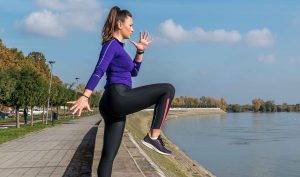Osteopathic Considerations To The Development and Resolution of Constipation
Ever wondered what an osteopathic approach to constipation looks like?
If you have ever experienced constipation and been told to “eat more fibre” you are not alone.
While diet is a very important consideration in constipation and shouldn’t be overlooked, just increasing fibre intake often isn’t enough to get the result we are after.
If we want to really address this common digestive issue from a wholistic perspective, it is essential to consider a much wider range of factors, which we will share with you below, but firstly we will explain the role of fibre and why you need two different types in your diet.
FIBRE EXPLAINED
Fibre is a carbohydrate that can not be digested by the body and there are two types, soluble and insoluble fibre.
Both types are important for maintaining health, preventing disease and a properly functioning digestive system.
SOLUBLE FIBRE
Soluble fibre dissolves in water and is commonly found in oats, peas, beans, raspberries, citrus, apples, psyllium, blackberries, barley and carrots just to name a few.
When it moves through the gut, soluble fibre creates a gel that helps stools to move through the intestines.
In addition, soluble fibre assists with:
- Maintaining healthy blood glucose levels
- Reducing cholesterol absorption
- Increases healthy gut bacteria levels
INSOLUBLE FIBRE
Insoluble fibre binds with water in the intestines to bulk the stool and help it move through the digestive tract.
It is commonly found in whole wheat flour, nuts, bran, beans, cauliflower, potatoes, passionfruit, popcorn, sunflower seeds and dried fruits such as apricots, prunes and dates.
Other benefits of insoluble fibre are:
- Reduces risk of haemorrhoids
- Lowers your chances of developing diverticulitis
- May lower your risk of diabetes
If we combine soluble and insoluble fibre, adult men need approximately 30g per day and adult women 25g per day. Children age 5-10 years need 10-15g per day and kids 10-15 years need 15-20g.
Australian adults are recommended to eat 5 serves of vegetables plus 2 serves of fruit per day.
HOW ABOUT TOO MUCH FIBRE
Yes it is possible to have excessive fibre and for a small number of people, this can in fact be a source of constipation.
This is more likely to occur if you have a diet very high in fruit and vegetables, such as being vegetarian or vegan, but can occur in others.
This is an uncommon cause of constipation, but worth pointing out, especially if you increase your fibre intake and only find the issue gets worse.
HYDRATION

Water intake is very important in preventing constipation.
In the large bowel, we absorb water from the stool as required to help maintain our hydration.
If we are dehydrated, the body considers it more important to absorb the fluid in the colon to maintain our other body functions.
When fluid intake is not meeting our requirements, the stool can become hard, dry, pebbly or may pass incompletely.
While water and other fluid intake varies according to diet, activity levels, individual metabolism, temperature, health status, age and much more, adults require approximately 2L per day (8 cups) as a baseline.
BEHAVIOURAL FACTORS
Behavioural factors are more often recognised in children as a potential cause of constipation.
Being too distracted and busy playing can lead to ignoring the natural body signals.
However this can also occur in adults.
Too busy, lack of time, rushing out the door, or not wanting to go at work, school or in public toilets can all be contributing factors.
In essence, you need to make the time to go.
This is best done when in conjunction with a well established routine, as the body is capable of learning a pattern of behaviour over time.
EMOTIONAL HEALTH
Being chronically stressed and under the pump can lead us to unconsciously tightening our muscles and can change the function of our nervous system.
This in turn can potentially have an impact on digestive function and for some people can be a significant factor in the development and persistence of constipation.
Stress lowering activities, such as exercise, meditation, hands on treatment, or time with loved ones can help us feel calmer and more at ease.
EXERCISE

Getting enough movement in our day helps to increase the appropriate activity of the digestive tract.
I like to think of it as a massage for your abdomen.
While there are specific exercise guidelines, remember any is better than none and slowly increasing your daily activity over time will have many health benefits.
It is recommended that adults (and kids) be active most days, with 30 minutes of exercise per day.
Over the week, adults are recommended 2.5-5 hours of moderate exercise or 1.25-2.5 hours of vigorous exercise (or a combination of both).
MECHANICAL FACTORS
If our body is tight and tense, such as the pelvic floor, this can have a direct mechanical impact on our ability to relax the bowel.
Our body posture and even how we sit on the toilet can also influence how straight or curved our bowel is positioned and can impact straining and further impact on constipation.
Try placing a footstool under the feet, encouraging the knees to be higher than the hips.
This can help to straighten the bowel and reduce pushing and tension in the pelvic girdle.
MEDICATIONS
Some medications can increase the tendency towards developing constipation, such as antidepressants, opioid pain relief medications as well as medicines that are aimed to lowering blood pressure.
In some instances, if the constipation if causing pain, small tears, bleeding or other concerns, speak to your doctor regarding your medication options.
FAT INTAKE
A diet excessively high in fat can impact digestive movements and slow down the system.
In some people with relatively low dietary intake of fat or people with gallbladder issues, a sudden increase in fat can have the opposite effect and cause loose stools.
MEDICAL CONDITIONS
A sudden change to your bathroom habits, including constipation is worth discussing with your trusted health professional.
Some medical conditions can increase constipation, such as; irritable bowel syndrome (IBS), colorectal cancer, underactive thyroid, diabetes, diverticular disease or hypercalcemia.
WHAT HAPPENS IF YOU MENTION CONSTIPATION AT YOUR OSTEOPATHY APPOINTMENT?
Firstly we will discuss what is happening in your body and ask you certain questions to get more information.
From here, our Osteopaths may in conjunction with any other issue that you are presenting with (such as back pain) will assess your body.
For example, we may perform an abdominal assessment plus feel for tight muscles, body positioning and movement.
Then we will discuss our findings and recommendations with you.
We often work in conjunction with your doctor or other health care professionals to ensure you are well taken care of from all angles.
Please contact our team if you have any questions regarding our guide to osteopathic considerations to the development and resolution of constipation.

